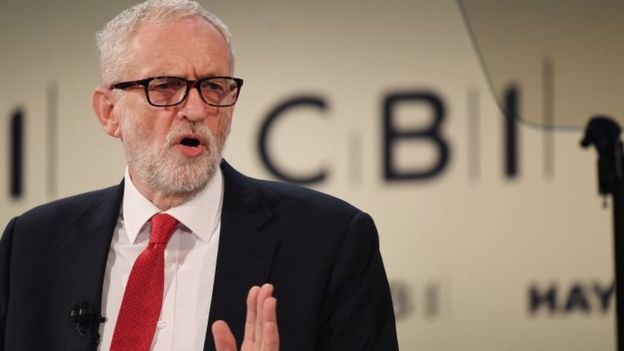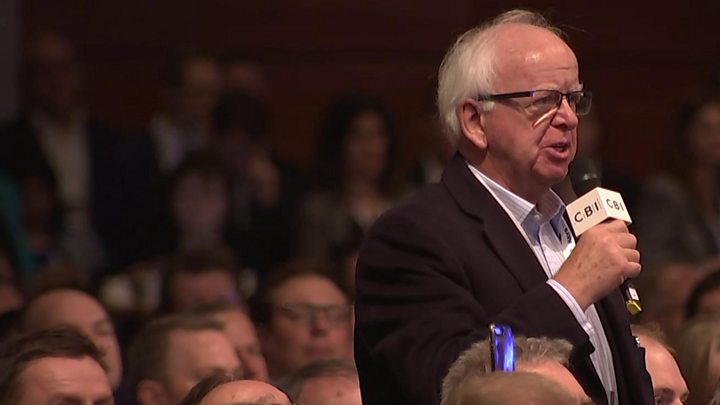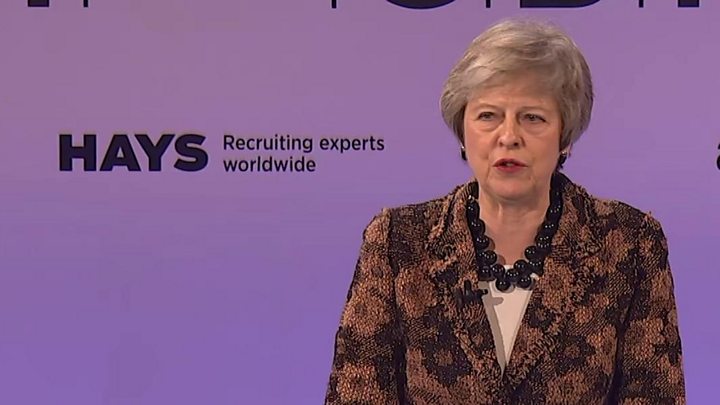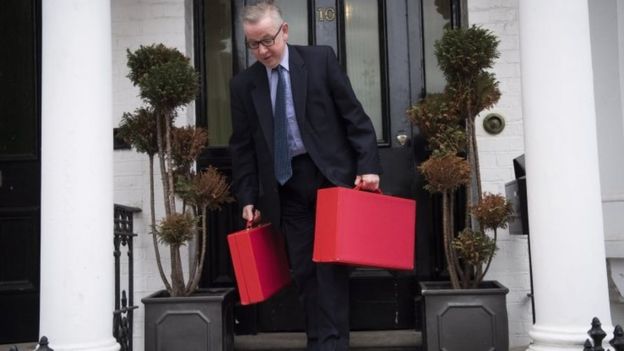Brexit plan will stop EU migrants ‘jumping the queue’ – May
GB news 24 desk//
Theresa May has renewed her efforts to sell her draft Brexit withdrawal agreement – arguing it will stop EU migrants “jumping the queue”.
She said migration would become skills-based, with Europeans no longer prioritised over “engineers from Sydney or software developers from Delhi”.
The PM also insisted to business leaders at the CBI that the withdrawal deal had been “agreed in full”.
Nicola Sturgeon said the PM’s remarks on EU free movement were “offensive”.
The Scottish First Minister said for the prime minister to use such language to describe reciprocal arrangements entered into freely by the UK – allowing EU nationals to live and work in the UK and vice-versa – was “really disgraceful”.
Meanwhile, the DUP, which is opposed to the Irish border backstop proposal in the withdrawal agreement, abstained on amendments to the Finance Bill in the Commons on Monday evening.
It also supported one amendment proposed by the Labour Party.
The DUP has a so-called confidence-and-supply arrangement to support the Conservative Party, which does not have a majority in the House of Commons, which was secured with a controversial £1bn funding deal for Northern Ireland.
The party’s Brexit spokesman, Sammy Wilson, told BBC’s Newsnight the abstentions were made because the government had broken a fundamental agreement to deliver Brexit for the people of the UK “as a whole” and to not “separate Northern Ireland constitutionally or economically from the United Kingdom”.
The move was designed to send a political message back, he said.
“‘Look, we’ve got an agreement with you, but you’ve got to keep your side of the bargain, otherwise we don’t feel obliged to keep ours.'”
A senior DUP source stressed, however, that this was not the end of the confidence-and-supply agreement between the Conservatives and the DUP.Also on Monday evening, the government said it would publish an economic analysis comparing the costs and benefits of its Brexit deal with those of the UK staying in the EU.
A cross-party group of MPs had proposed an amendment to the Bill calling on ministers to publish the forecasts.
The government said MPs would be given the analysis before the meaningful vote on the final deal. It will look at a no-deal scenario, a free trade agreement and the government’s proposed deal.
The prime minister’s appeal to business leaders came as Tory MPs continue to press for late changes to the deal.
Ministers from the remaining 27 EU countries have met in Brussels to work on the political declaration setting out their future relationship with the UK – a meeting which revealed Spanish concern at the wording’s impact on Gibraltar’s future.
Meanwhile, Labour leader Jeremy Corbyn, whose party is set to reject Mrs May’s deal, told the CBI business lobby group’s conference that Brexit can be a “catalyst for economic transformation” in the UK.
There has been widespread criticism of the draft 585-page withdrawal agreement – and the short paper setting out what the UK and EU’s future relationship could look like – which are set to be finalised and signed off at an EU summit this weekend.
Two of the prime minister’s cabinet ministers resigned over the proposed deal, while others are believed to be trying to change its wording.
Speculation continues over whether the number of Tory MPs submitting letters of no-confidence in Mrs May will reach the 48 required to trigger a confidence vote on her leadership of the Conservative Party.
What’s the PM’s next move?
Mrs May told the CBI’s annual conference in London that her plan would provide a fair immigration system that would help young people in the UK get jobs and training.
“It will no longer be the case that EU nationals, regardless of the skills or experience they have to offer, can jump the queue ahead of engineers from Sydney or software developers from Delhi.
“Instead of a system based on where a person is from, we will have one that is built around the talents and skills a person has to offer.”
She also said she was not willing to reopen discussions with Brussels over the withdrawal agreement, saying “the core elements of that deal are already in place”.
She said that she expected to hammer out a framework for a future trade relationship in Brussels this week, before signing off the deal on Sunday.
CBI president John Allan urged MPs to back Mrs May’s deal – despite it not being “perfect” – and warned of the consequences for businesses if the UK were to simply crash out of the EU.
What did Jeremy Corbyn say?
 Image copyrightEPA
Image copyrightEPAThe Labour leader said Mrs May’s “botched” deal “breaches the prime minister’s own red lines” and “makes no mention of retaining frictionless trade”.
Mr Corbyn suggested the EU would consider re-writing the draft agreement “at the 11th hour” if MPs rejected the proposals.
He also suggested the UK’s exit from the EU should be a catalyst for far-reaching economic and social change and a “radical programme of investment” in infrastructure, education and skills.
Why are people unhappy with the deal?
The draft document sets out the terms of the UK’s departure, including how much money will be paid to the EU, details of the transition period, and citizens’ rights.
The transition period – currently due to last until 31 December 2020 – will mean the UK is officially out of the EU, but still abiding by most of its rules. During this time, the two sides hope to negotiate a permanent trade deal.
The UK and the EU want to avoid a hard Northern Ireland border whatever happens, so they agreed to a “backstop” – described as an insurance policy by Mrs May – aimed at achieving this if the sides cannot agree a trade deal that avoids a physically visible border.

The backstop would mean Northern Ireland would stay more closely aligned to some EU rules, which critics say is unacceptable. And the whole of the UK would be in a single custom territory – effectively keeping the whole of the UK in the EU customs union.
The critics say that during the transition period, the UK will still abide by most of the EU’s rules but have no power over setting them – and there is no system for the UK being able to leave any backstop deal without the EU’s agreement, so it could become a permanent arrangement.
Could the transition period be extended?
When asked whether the transition period could last until the end of 2022, Business Secretary Greg Clark told BBC Radio 4’s Today programme: “It would be at our request and that would be a maximum period.”
He said it could be extended for a matter of “weeks or months”, and added: “If we were six weeks away from concluding a future economic partnership and agreeing that, then it may make sense to extend the transition period.”

Later, Mrs May told the CBI conference that it was “important” to be out of the implementation period before the next general election – which is due in June 2022.
- Reality Check: The withdrawal agreement explained
What is the latest Tory reaction?
Environment Secretary Michael Gove, one of the five cabinet ministers who were believed to be trying to change the wording of the deal, said on Monday that the prime minister “has my full support” and she is doing a “very good job”.
“I hope people will get behind her as she endeavours to get the very, very best deal for Britain,” he said.
 Image copyrightEPA
Image copyrightEPABut former Foreign Secretary Boris Johnson used his column in Monday’s Daily Telegraph to renew his criticism of the draft agreement, describing it as a “585-page fig-leaf [that] does nothing to cover the embarrassment of our total defeat”.
And former Tory leader Lord Howard told BBC Radio 4’s Today programme that a vote of confidence would be a distraction.



Comments are closed.